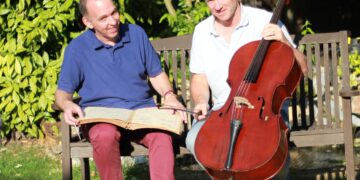I recently moved house and much to my horror, within a few days both of my cats were already catching and killing birds.
So this made me think, how much of an impact does cats’ hunting habits really have on the population of birds in the UK?
It is estimated that cats kill up to 275million prey in the UK every year, 27 million of which are birds. Despite this large number, there is actually no evidence that this is causing the number of birds to decline.
It is known that certain species are on the decline such as skylarks, tree sparrows and corn buntings, although these species will rarely come across cats. This decline is more likely to be due to changes or loss of their natural habitat, usually on farmland.
The most commonly caught species by cats are house sparrows, blue tits, blackbirds and starlings. I remember one sad occasion a few years ago when one of my cats killed a whole nest of young blue tits. Blue tits have actually been seen to increase by over 25% since 1966.
There are certain species which are on the decline and gardens are common breeding grounds for these species so trying to reduce predation will help these birds. So how can we help them?
Collars with a bell can make wildlife aware that cats are out and about hunting. Cats equipped with a bell return 41 per cent fewer birds and 34 per cent fewer mammals than those with a plain collar. Please make sure that the collar is fitted correctly making sure that you are able to fit two fingers under the collar and that it has a quick release mechanism.
If you are worried at all about the fit of the collar we would be more than happy to help.
Another top tip is keeping your cats in an hour before sunset and an hour after sunrise when birds or most active, or during rainy or cold weather so the birds have a chance to feed.
It is also sensible to place nesting boxes and feeders well out of the way of the cat’s reach.
So what can you do if you find a poorly bird?
Please always remember that any handling of wild birds is very stressful and handling itself can cause further injury. It is normally impossible to catch a bird unless it is very young or very poorly. Please place the injured bird in a well ventilated covered box.
Keeping the bird in a darker place will help reduce stress. Call your local vet or the RSPCA as soon as possible.
If the bird is injured by a cat, it is very likely to quickly develop septicaemia which can be fatal so time is of the essence.
If you have any further questions we would be very happy to help.

Katie Love is a veterinary surgeon at St Vincents Veterinary Surgery, an independent practice offering personal care for all your pets. Katie has a keen interest in feline medicine and can be contacted at the surgery if you have any concerns about your pet’s health, and you can also arrange a tour of the practice and meet the team by calling us on 0118 979 3200. For more information visit www.stvincentsvets.co.uk or find us on Facebook.
















































